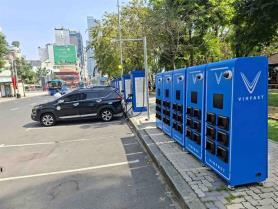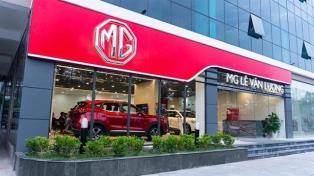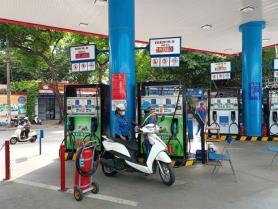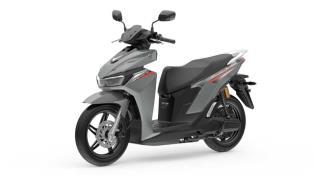To realise its leading ambitions, the country's lithium battery industry needs capital, technology and skilled workers as well as another crucial element: a specialised logistics system capable of handling sensitive and hazardous goods.
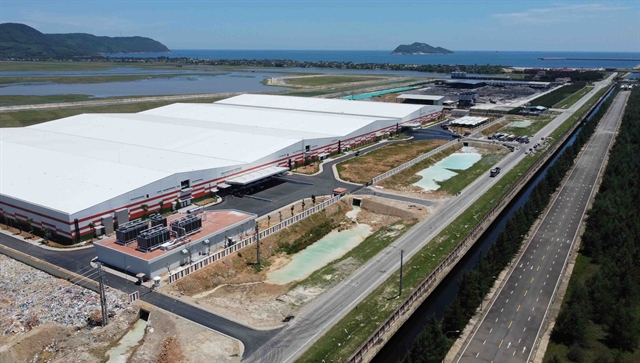
HÀ NỘI — Việt Nam is emerging as a potential hub in the global lithium battery supply chain, but to truly realise this ambition, logistics — often seen as a background element — are absolutely vital, and must be put in place from production to export.
A new lever for green growth
The country's ambition for a clean energy transition is becoming increasingly clear in national policies. According to Power Development Plan VIII, renewable energy will account for over 39 per cent of total electricity output by 2030.
Simultaneously, Decision 876/QĐ-TTg by the Prime Minister aims for 100 per cent of road transport vehicles to use electricity or green energy by 2050.
These goals are creating momentum for a key industry: lithium battery manufacturing and export.
A report by IMARC Group, a global market research and management consulting firm, showed that Việt Nam's lithium-ion battery market was predicted to achieve a Compound Annual Growth Rate of 10.1 per cent through 2033, driven by exploding demand from electric vehicles (EVs) and energy storage systems.
In response to this trend, numerous large-scale battery manufacturing projects are being implemented across the country.
One notable example is a battery factory owned by VinES, a subsidiary of Vingroup, under construction in Vũng Áng Economic Zone, Hà Tĩnh Province.
Its Phase 1 capacity is 5GWh per year, with a total investment of over VNĐ6 trillion (US$230 million).
In Bắc Giang Ward, Bắc Ninh Province, China's Sunwoda Group has also invested over $275 million in a lithium battery plant.
Meanwhile, Samsung SDI is operating a battery manufacturing complex in Thái Nguyên Province, supplying the global electronics and EV industries.
Along with the surge in FDI, Việt Nam is forming battery industrial clusters in northern areas including Hà Tĩnh, Bắc Giang (now part of Bắc Ninh Province), Thái Nguyên and Hải Phòng.
Notably, Resolution 68-NQ/TW has created a favourable legal framework for the development of clean industry and logistics by emphasising the role of the private economic sector, expanding industrial zones and upgrading infrastructure.
On this basis, Việt Nam is gradually building a foundation to become a strategic manufacturing destination in the global battery value chain.
However, to realise its leading ambitions, the country's lithium battery industry needs capital, technology and skilled workers as well as another crucial element: a specialised logistics system capable of handling sensitive and hazardous goods.
Upgrading logistics to ride the export wave
Ee-Hui Tan, Managing Director of FedEx's operations in Cambodia and Việt Nam, said that lithium batteries were classified as dangerous goods due to their flammable and explosive properties if not handled correctly.
The transportation of these goods must therefore strictly comply with international regulations and rules set out by agencies like the International Air Transport Association and the International Civil Aviation Organization.
From UN-certified packaging and identification labelling to transport documentation, every process demands absolute precision and safety, according to the director.
Việt Nam's logistics ecosystem is gradually adapting to new global standards. International entities like FedEx, DHL Express and specialised international freight carriers like Dimerco now offer comprehensive logistics solutions for lithium battery shipments.
Within Việt Nam, domestic logistics providers like IPO Logistics, HDG Logistics and Ai Logistics also offer transportation and customs declaration services for lithium batteries.
These companies assist with HS Code classification, preparation of UN38.3 certificates, customs clearance procedures and safe domestic transportation.
As ASEAN becomes a hotspot for the battery supply chain investment wave, logistics will be a decisive factor in the ability to catch up to and surpass competition.
Việt Nam currently possesses advantages in terms of location, timing and human harmony, which will allow it to rise as Southeast Asia's lithium battery manufacturing hub.
However, to transform this potential into reality, economic experts believe that logistics must be seen as a strategic pillar on par with technology, investment capital or policy.
When the logistics ecosystem becomes robust enough, Việt Nam will not only export batteries, but also strengthen confidence in a global value chain by betting on clean energy, say experts. — VNS

